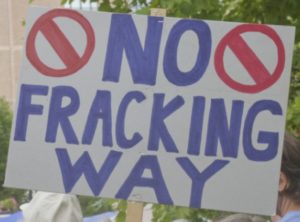 Should Chris Wallace ask our presidential candidates about climate change? Absolutely, but only as part of a broader discussion of the role of fossil fuels in America’s energy future.
Should Chris Wallace ask our presidential candidates about climate change? Absolutely, but only as part of a broader discussion of the role of fossil fuels in America’s energy future.
“Climate change” — more precisely, man-made warming — is a side effect of using fossil fuels for cheap, plentiful, reliable energy. To ask candidates to address climate change without addressing the unique benefits of fossil fuels is like asking the candidates to address vaccine side effects without addressing the unique benefits of vaccines.
The question Wallace should ask is: “Given your assessment of the benefits and risks of fossil fuels, including the effects of warming, what is the right energy policy for America?”
Energy is the industry that powers every other industry. Cheap, plentiful, reliable energy makes possible cheap, plentiful, reliable food, drinking water, sanitation, transportation and housing.
In a world where more than 1 billion people have no electricity and a much larger number live in deep “energy poverty,” only the fossil fuel industry has developed the ability to produce energy for electricity, fuel and heat on a scale of billions. The politically popular alternatives, solar and wind, are expensive “unreliables” that depend on reliable sources, mostly fossil fuels, for life support.
In America, the fossil fuel industry has been the indispensable supporter of our economy for the past decade, as the shale energy revolution has made the U.S. the world’s energy superpower. We can do much more.
But should we? To answer that, we have to reject the false alternative of “climate change believer” or “climate change denier” and become “climate thinkers” — people who think carefully about the magnitude of man-made warming and compare it with the unique benefits of fossil fuels.
Candidates who are climate thinkers will conclude that man-made warming is mild and manageable, not runaway and catastrophic. And thus they will conclude that fossil fuels should be liberated, not restricted.
Alex Epstein, the author ofThe Moral Case for Fossil Fuels, is president and founder of the Center for Industrial Progress, a for-profit think tank that has clients in the fossil fuel industry.
















